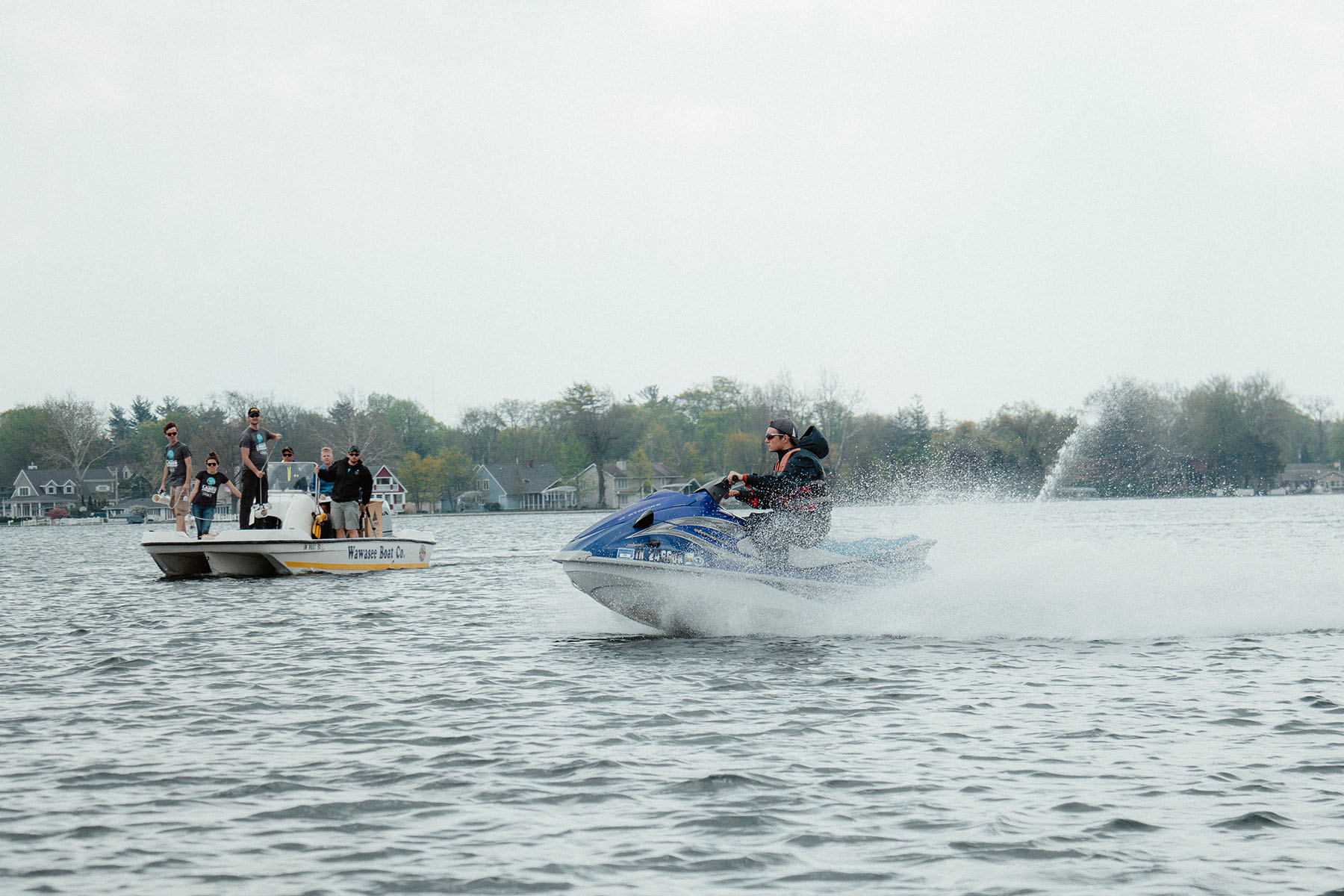Episode 13 | Water Safety and Protection: Insights from a Conservation Officer
Experience the world of conservation law enforcement through the eyes of Lieutenant Ashley Jackson, District 1 Commander with the Indiana Department of Natural Resources. Discover the path that led Ashley to a career that combines a love for nature with a family legacy in law enforcement. As fully sworn officers, conservation officers like Ashley play a crucial role in supporting a variety of DNR divisions. From his training at the Indiana Law Enforcement Academy to his current role, Ashley shares valuable advice for anyone considering a career in conservation law enforcement, alongside insights into the diverse contributions of Lilly Center graduates in fields like fisheries and wildlife management.
Uncover the transformative power of education and outreach in fostering safe and responsible lake usage. Through initiatives such as Operation Dry Water and educational conservation camps like Camp Mollenhour, young and seasoned outdoor enthusiasts alike are encouraged to embrace responsible practices. These programs aim to engage the community and nurture a generation that respects and values natural resources. By tackling issues like safe boating practices and alcohol consumption on the water, these efforts enhance public compliance with safety regulations, ensuring that everyone can enjoy the lakes safely.
Explore the ecological impact of boats and the measures needed to protect lake environments. Responsible fishing and boating practices begin with simple actions like obtaining fishing licenses and boat registrations, which fund crucial lake improvement programs. Learn how conservation officers work tirelessly to ensure waterway safety, including conducting water rescues and using advanced equipment to patrol extensive lake areas.
Additionally, delve into the fascinating findings of a research project on sediment resuspension caused by various watercraft, emphasizing the importance of maintaining a minimum water depth to protect aquatic ecosystems from nutrient pollution and harmful algae blooms.

Safe boating has a lake impact
Choosing to boat in at least ten feet of water not only increases the wave action from your boat, it also leaves the lake bottom undisturbed. Keeping nutrients contained means less food for weeds and algae to consume – and more lake fun all summer long!